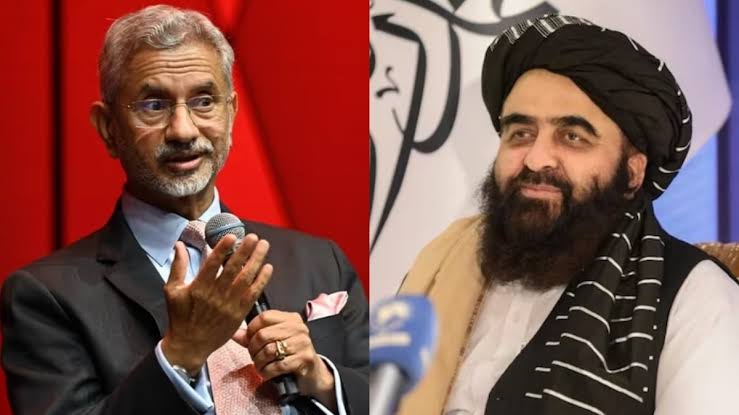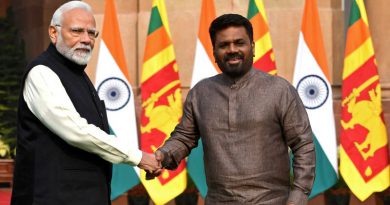Taliban FM Amir Khan Muttaqi Begins Official Visit to India
New Delhi – Afghanistan’s Foreign Minister Amir Khan Muttaqi arrived in New Delhi on Thursday for an official visit aimed at strengthening bilateral ties and discussing regional developments, marking a rare high-level engagement between India and the Taliban-led administration in Kabul.
India’s Ministry of External Affairs (MEA) welcomed the Afghan minister in a post on X, formerly Twitter, stating: “We look forward to engaging discussions with him on bilateral relations and regional issues.”
Muttaqi, who will remain in India until October 16, is expected to meet External Affairs Minister S. Jaishankar and National Security Advisor Ajit Doval during his stay, according to diplomatic sources.
UN travel exemption cleared visit
The visit comes after weeks of delay caused by the need for a United Nations Security Council (UNSC) exemption from travel restrictions placed on senior Taliban officials. Muttaqi’s name remains on a list of sanctioned individuals subject to a UN travel ban, which requires special permission for international travel.
Last week, MEA spokesperson Randhir Jaiswal confirmed that the UNSC Sanctions Committee had granted permission for Muttaqi to visit India between October 9 and 16.
“All of you would have seen the exemption that has been granted by the UN Security Council Committee for the travel of the Afghan Foreign Minister to New Delhi,” Jaiswal said during a media briefing. “We shall keep you updated in this regard.”
India’s cautious engagement with the Taliban
Since the Taliban’s return to power in August 2021, India has maintained a careful but pragmatic approach to engaging with the regime, stopping short of formal recognition while keeping diplomatic and humanitarian channels open.
“We have been having conversations with the interim government in Afghanistan,” Jaiswal said, noting past communications between the two sides.
“You would have seen the telecon that took place some time back between the External Affairs Minister and Foreign Minister Muttaqi. Also, we’ve had a conversation between the Joint Secretary in charge and his counterparts on the Afghan side.”
Diplomatic observers say New Delhi’s engagement reflects its efforts to safeguard regional security interests, prevent the spread of extremism, and ensure that Afghanistan’s territory is not used against India’s security concerns.
Humanitarian aid and reconstruction expected to top agenda
Humanitarian assistance, connectivity, and ongoing infrastructure projects are expected to feature prominently in the discussions. India has been among Afghanistan’s largest regional donors over the past two decades, funding roads, hospitals, and educational institutions.
“Recently, when the earthquake happened, we were able to transport relief material to Kunar province the same day, and subsequently we sent more relief material via Chabahar,” Jaiswal said, highlighting India’s continued humanitarian engagement despite the absence of formal diplomatic recognition.
New Delhi has also been quietly expanding cooperation on food and medical supplies, including wheat shipments and life-saving drugs. The recent visit of Afghanistan’s Deputy Minister of Medicine and Food, Hamdullah Zahid, to attend a pharmaceutical exhibition in India underscored growing functional ties between the two countries.
Broader diplomatic context
Muttaqi’s visit follows several months of behind-the-scenes diplomatic contact between India and Taliban officials. Earlier this year, Indian Foreign Secretary Vikram Misri met the Afghan minister in January to discuss economic and regional issues.
Analysts view the latest visit as part of a gradual normalization process, in which India seeks to maintain influence in Afghanistan while avoiding premature recognition of the Taliban regime.
“India’s engagement with the Taliban is guided by both humanitarian necessity and strategic caution,” said a South Asia analyst based in Doha. “New Delhi does not want to leave a vacuum for Pakistan or China to fill.”
Regional security, counterterrorism, and the humanitarian crisis in Afghanistan are also expected to be key points of discussion. Indian officials have repeatedly expressed concern about the potential for militant groups operating in Afghanistan to destabilize the wider region.
New Delhi is also closely watching Taliban interactions with Pakistan, China, and Iran, all of whom maintain varying degrees of engagement with Kabul.
“India recognizes the geopolitical reality that the Taliban are in control,” said a former Indian diplomat. “However, engagement does not equate to endorsement.”
No formal recognition yet
India has not recognized the Islamic Emirate of Afghanistan, the name used by the Taliban for their government. However, it has reopened its diplomatic mission in Kabul in a limited capacity since mid-2022, primarily to oversee humanitarian programs and development assistance.
In past statements, India has emphasized that recognition of the Taliban government will depend on its actions on inclusivity, human rights—especially women’s rights—and counterterrorism commitments.
Despite these reservations, the continuation of dialogue signals a pragmatic shift in India’s foreign policy approach, particularly as the Taliban seeks broader regional legitimacy.
Growing regional diplomacy
Muttaqi’s trip to India is seen as part of Kabul’s broader diplomatic outreach to regional powers. Over the past year, Taliban officials have made visits to China, Iran, Pakistan, and Qatar, seeking investment and political engagement amid Afghanistan’s worsening economic isolation.
The timing of the visit is also notable, coming amid rising regional uncertainty over the security situation in Afghanistan’s northern provinces and reports of renewed militant activity linked to the Islamic State-Khorasan Province (ISKP).
For India, observers say the talks offer an opportunity to reassert its presence in Afghanistan and ensure its aid and investment efforts align with its long-term strategic interests in Central and South Asia.
A delicate balancing act
Experts caution that while India is expanding its contacts with the Taliban, it remains wary of being seen as legitimizing the group’s rule. “India’s position is clear — humanitarian engagement and talks on regional stability do not amount to recognition,” said a senior policy researcher at an Indian think tank.
Muttaqi’s visit, therefore, represents both a test and an opportunity for New Delhi — testing how far it can engage without crossing the recognition threshold, while offering a platform to advance shared interests such as trade, connectivity, and counterterrorism.



